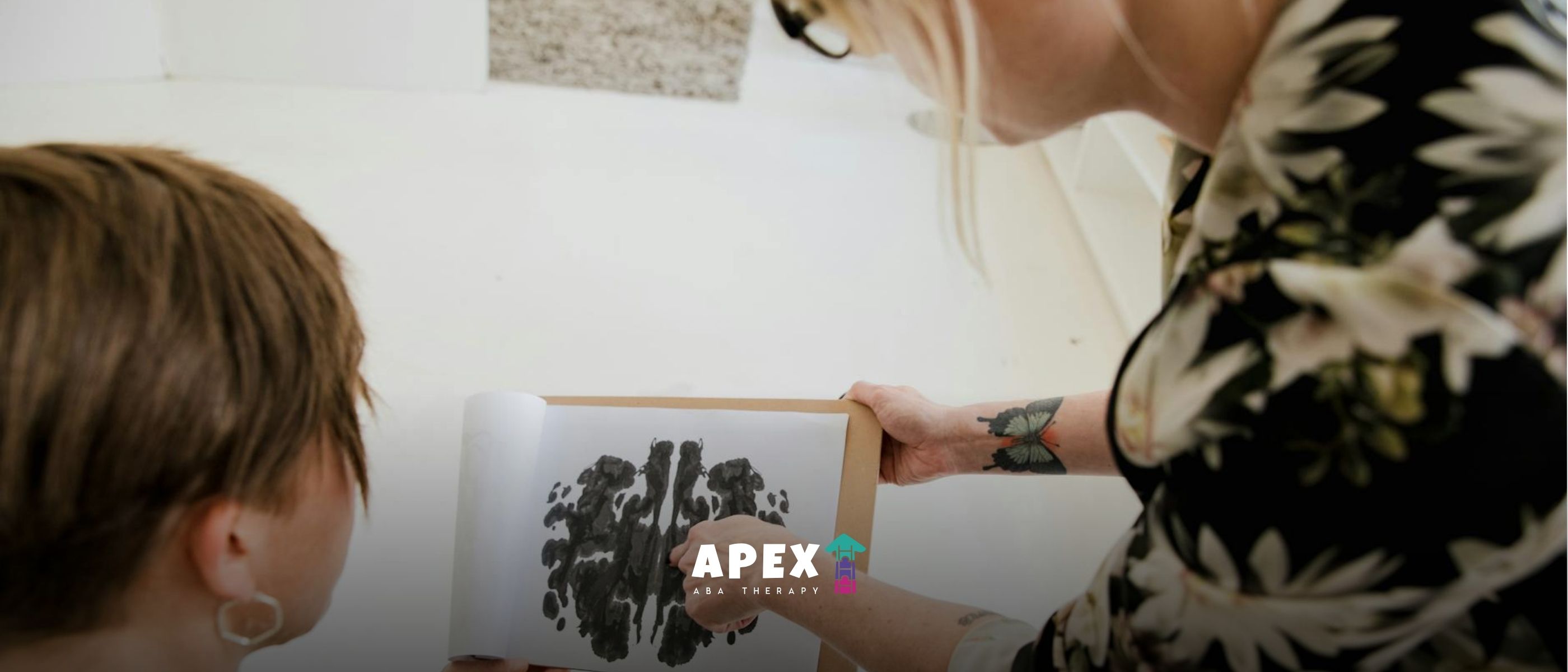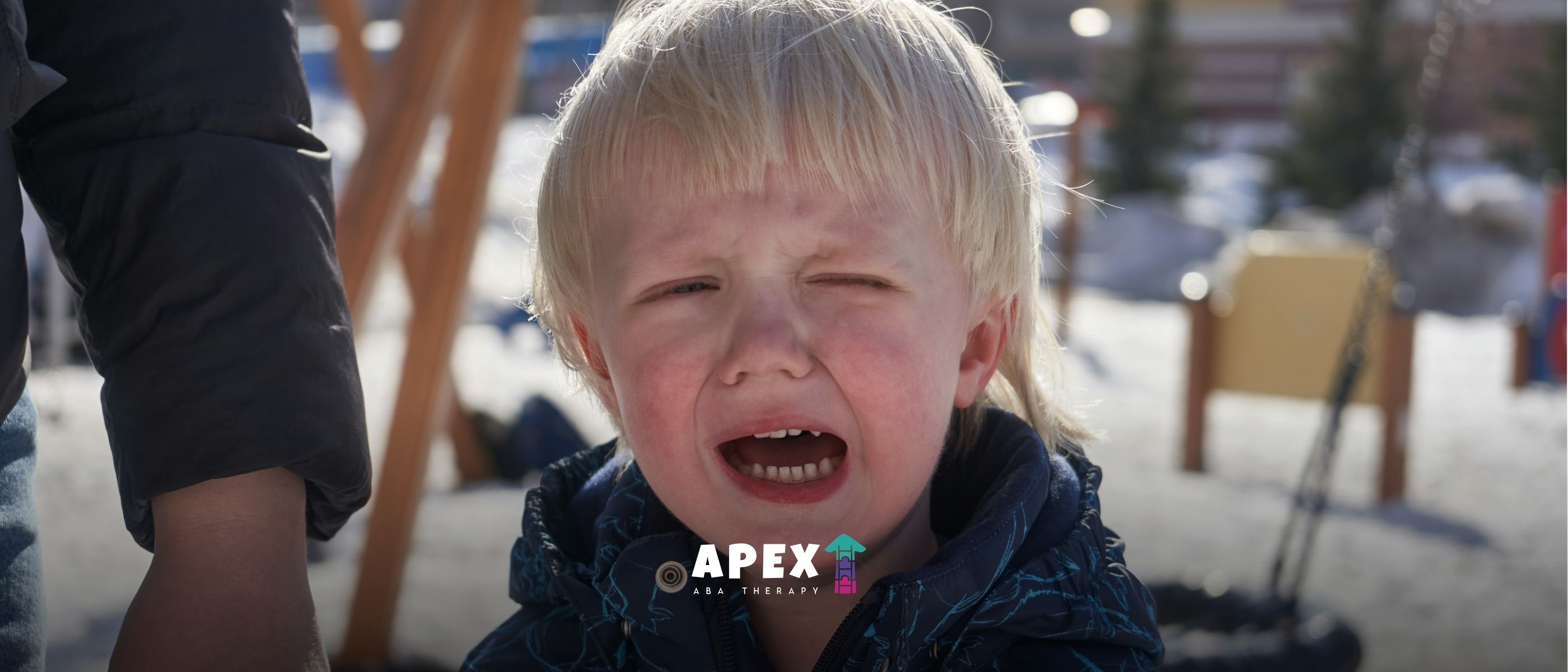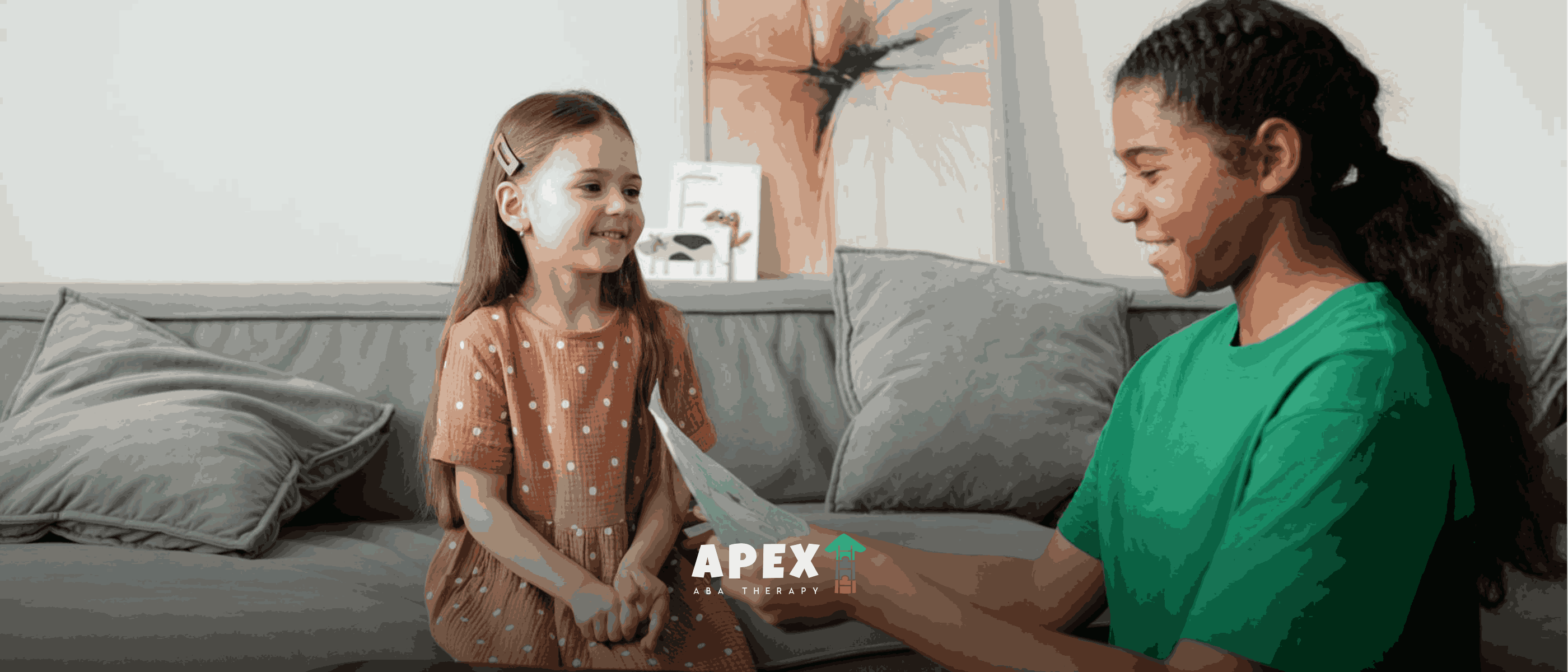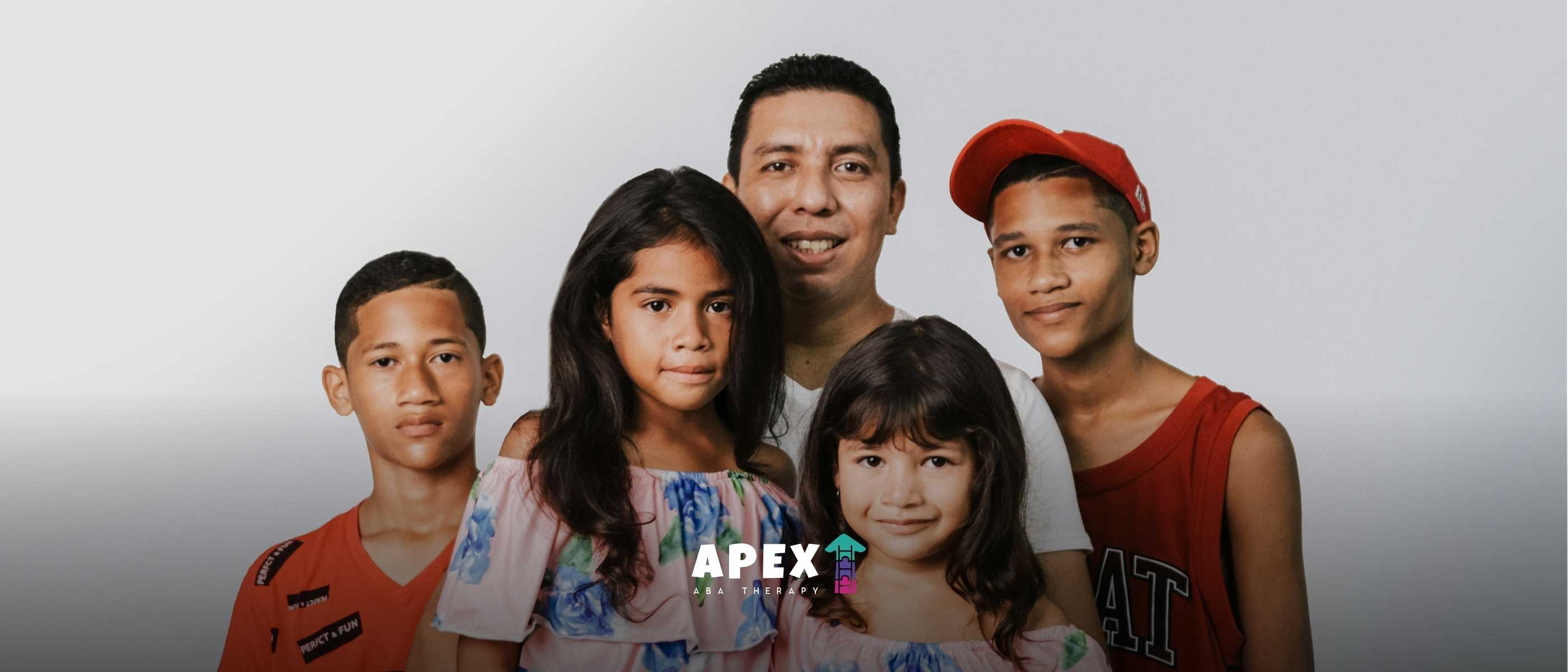Do Autistic People Get Married?
Uncover insights into the diverse and meaningful ways individuals on the autism spectrum navigate love and partnerships. Join us in breaking down stereotypes, celebrating unique journeys, and fostering a deeper understanding of the rich tapestry of relationships within the autistic community.

Do Autistic People Get Married?
Autistic Adults and Marriage
Stereotypes surrounding autism have often led to misconceptions about the ability of autistic adults to form and maintain successful marriages. However, it is essential to challenge these stereotypes and recognize that autistic adults can have fulfilling and loving relationships. In this section, we will explore the dynamics of autism and relationships, while debunking common myths regarding the marriage capabilities of autistic adults.
Understanding Autism and Relationships
Autism is a neurodevelopmental disorder that affects individuals' social communication and interaction skills. Autism is a spectrum disorder, meaning that it manifests differently in each individual. Some individuals with autism may face challenges in social interactions, while others may have strong social skills but struggle with sensory sensitivities or communication difficulties.
When it comes to relationships, autistic adults can form deep connections, experience love, and desire companionship, just like anyone else. Although the way they navigate relationships may differ from neurotypical individuals, autistic adults can develop meaningful and lasting bonds with their partners.

Can Autistic Adults Get Married?
One common myth surrounding autistic adults is the belief that they are unable to get married or have successful marriages. However, this myth is unfounded and fails to acknowledge the diverse range of abilities and strengths within the autistic community.
Autistic adults are fully capable of entering into marriages and maintaining healthy relationships. While it is true that some autistic individuals may face unique challenges in relationships, such as difficulty with social skills or sensory sensitivities, these challenges can be addressed and managed with understanding, support, and effective communication.
It is important to recognize that each individual's experience with autism is unique and that generalizations should be avoided. Some autistic adults may prefer to have committed long-term relationships without getting married, while others may choose to marry and build a life together. The decision to marry or not should be based on the individual's personal preferences and desires, rather than assumptions about their capabilities.
By understanding and challenging these stereotypes, we can create a more inclusive and accepting society that recognizes the rights and abilities of autistic adults to pursue fulfilling relationships, including marriage.
Factors Affecting Marriage for Autistic Adults
Marriage can be a meaningful and fulfilling experience for autistic adults. However, it's important to acknowledge that certain factors related to autism can impact relationships and the decision to pursue marriage. Understanding these factors can help create a supportive and inclusive environment for autistic individuals seeking marriage.
Communication Challenges
Communication challenges are a common feature of autism and can affect various aspects of relationships, including marriage. Autistic adults may experience difficulties with verbal and nonverbal communication, such as understanding social cues, expressing emotions, or interpreting sarcasm and figurative language. These challenges can sometimes lead to misunderstandings and miscommunications within a marriage.
Effective communication strategies can be learned and developed. Autistic individuals can benefit from therapy, such as applied behavior analysis (ABA), that focuses on improving communication skills and social interactions. Seeking professional guidance and utilizing tools and techniques tailored to individual needs can significantly enhance communication and strengthen marital bonds.
Sensory Sensitivities
Sensory sensitivities are another aspect of autism that can impact marriage. Autistic individuals may experience heightened sensitivity or hypo-sensitivity to sensory stimuli, such as noise, touch, taste, or smell. These sensory differences can influence the way individuals perceive and respond to their environment, including their interactions with a spouse.
Creating a sensory-friendly environment within the home can help mitigate potential challenges. This may involve designating quiet spaces, using noise-cancelling headphones, or adjusting lighting to reduce sensory overload. Understanding and accommodating sensory sensitivities can contribute to a more comfortable and harmonious marriage for autistic individuals.
Social Skills and Emotional Connection
Autistic individuals may face social skills and emotional connection challenges, which can impact their ability to form and maintain relationships, including marriage. Difficulties with social reciprocity, understanding emotions, and establishing emotional connections can pose unique obstacles.
However, it's important to recognize that autistic individuals have diverse strengths and capabilities. With appropriate support and understanding, they can develop social skills and foster emotional connections. Therapeutic interventions, such as social skills training and cognitive-behavioral therapy, can be beneficial in enhancing social competence and emotional understanding.
By acknowledging and addressing the factors that can affect marriage for autistic adults, we can create an inclusive and supportive environment that allows individuals on the autism spectrum to pursue fulfilling and meaningful relationships. With the right tools, strategies, and support, autistic individuals can experience the joys and rewards of a loving and committed marriage.
Benefits of Marriage for Autistic Adults
Contrary to common misconceptions, marriage can bring numerous benefits to autistic adults. It provides a platform for emotional support, companionship, increased independence, autonomy, and the possibility of building a family. Let's explore these benefits further.
Emotional Support and Companionship
Marriage offers a valuable source of emotional support and companionship for autistic adults. Having a life partner who understands and accepts their unique traits and challenges can enhance their overall well-being.
A supportive spouse can provide a sense of security, comfort, and understanding, which can be especially important for individuals with autism who may struggle with social interactions and relationships. The emotional bond and connection formed through marriage can create a safe and nurturing environment where both partners can grow and thrive.
Increased Independence and Autonomy
Marriage can also contribute to increased independence and autonomy for autistic adults. Through shared responsibilities and decision-making, individuals with autism can develop essential life skills and gain confidence in their abilities.
The mutual support and collaboration within a marriage can empower autistic adults to take on new challenges, pursue personal goals, and develop a sense of self-reliance. Moreover, the partnership in marriage can provide opportunities for personal growth and self-discovery, enabling individuals to explore their interests, passions, and aspirations.
Building a Family
For those who desire it, marriage can provide the opportunity to build a family. Many autistic adults have a strong desire to have children and experience the joys and responsibilities of parenthood. Marriage offers a stable foundation to create a nurturing environment for raising a family.
It allows for the sharing of parental roles, responsibilities, and the joys and challenges that come with raising children. Building a family can bring a sense of purpose, fulfillment, and a deeper connection to future generations.
It's important to remember that the benefits of marriage for autistic adults may vary depending on individual circumstances and preferences. Some autistic adults may choose not to marry or form romantic partnerships, and that choice should always be respected. Each person's journey and experience with marriage will be unique.
In the next section, we will explore practical tips and strategies for navigating relationships and achieving a successful marriage.
Navigating Relationships and Marriage
Navigating relationships and marriage can present unique challenges for autistic adults. However, with the right strategies and support, building strong and fulfilling relationships is possible. In this section, we will explore three important aspects of navigating relationships and marriage for autistic adults: building strong communication skills, seeking support and resources, and embracing neurodiversity in relationships.
Building Strong Communication Skills
Communication is a vital component of any successful relationship. For autistic adults, developing strong communication skills can help foster understanding, resolve conflicts, and strengthen emotional connections. Some strategies that can aid in building strong communication skills include:
- Being clear and explicit: Autistic individuals often appreciate direct and explicit communication. Using clear language, avoiding sarcasm, and stating intentions explicitly can help minimize misunderstandings.
- Active listening: Actively listening to your partner's thoughts and emotions demonstrates empathy and understanding. Give your full attention, maintain eye contact, and provide verbal or non-verbal cues to show that you are engaged in the conversation.
- Using visual supports: Visual aids, such as written schedules, social stories, or visual organizers, can assist in conveying information and enhancing comprehension. These tools can be particularly helpful when discussing plans, expectations, or changes in routines.
Seeking guidance from a therapist or counselor who specializes in working with autistic individuals can provide valuable strategies for improving communication skills.
Seeking Support and Resources
Seeking support and utilizing available resources can significantly contribute to the success of a relationship or marriage involving autistic individuals. It is essential to build a network of supportive individuals who can offer guidance, understanding, and assistance when needed. Some potential sources of support and resources include:
- Autism support groups: Connecting with other individuals who have similar experiences can provide a sense of community, validation, and an opportunity to share strategies and advice.
- Therapy and counseling: Engaging in therapy or counseling can offer a safe and supportive environment to explore relationship challenges, develop coping strategies, and enhance relationship skills.
- Educational materials: Reading books, articles, or attending workshops focused on autism and relationships can provide valuable insights, practical tips, and guidance for navigating the complexities of marriage and relationships.
Remember, seeking support and resources is not a sign of weakness but a proactive step towards building a healthy and successful relationship.
Embracing Neurodiversity in Relationships
Embracing neurodiversity is an important aspect of nurturing a relationship involving autistic individuals. Recognizing and valuing the unique strengths, perspectives, and experiences of both partners can foster acceptance and mutual respect. Here are some ways to embrace neurodiversity in relationships:
- Open communication: Discuss your individual needs, preferences, and sensitivities openly and honestly. By understanding each other's perspectives, you can find compromises that meet both partners' needs.
- Respect for differences: Recognize and appreciate the different ways in which each partner may experience the world. Be patient and understanding when differences arise, and work together to find solutions that accommodate both partners' needs.
- Shared experiences: Engage in activities that cater to both partners' interests and strengths. Finding common ground and enjoying shared experiences can strengthen the bond between partners.
By embracing neurodiversity in relationships, partners can create an environment that values each other's unique qualities and promotes a sense of belonging.
Building strong communication skills, seeking support and resources, and embracing neurodiversity are essential steps in navigating relationships and marriage for autistic adults. By implementing these strategies and fostering an environment of understanding and acceptance, autistic individuals can cultivate fulfilling and lasting relationships.
Tips for a Successful Marriage
Marriage is a journey that requires effort, understanding, and commitment from both partners, including autistic adults. Here are some tips to help ensure a successful and fulfilling marriage for autistic individuals:
Creating Structure and Routine
Establishing a structured and predictable environment can provide a sense of security and stability for both partners. Autistic individuals often thrive in environments that follow a routine. Setting up a daily schedule, maintaining consistent meal times, and planning activities together can help create a harmonious and comfortable atmosphere.
By having a clear structure in place, it becomes easier for both partners to navigate daily tasks, manage responsibilities, and reduce anxiety. Openly communicate with your partner about your preferences and work together to establish a routine that suits both of your needs.
Embracing and Respecting Differences
Every individual, autistic or not, brings their own unique set of strengths, challenges, and perspectives to a marriage. Embracing and respecting these differences is key to fostering a loving and supportive relationship. Take the time to understand and appreciate each other's strengths and challenges.
Effective communication plays a crucial role in understanding and respecting each other's differences. Be patient, listen actively, and express your thoughts and feelings in a clear and non-judgmental manner. Remember, open and honest communication is the foundation of a strong and successful marriage.
Prioritizing Self-Care and Well-being
Taking care of oneself is essential for maintaining a healthy and fulfilling marriage. For autistic individuals, it is important to recognize and address the specific self-care needs that arise from their unique sensory sensitivities, communication challenges, and social demands.
Make self-care a priority by engaging in activities that bring you joy and relaxation. This could include practicing mindfulness exercises, pursuing hobbies, or engaging in sensory activities that help regulate your emotions. Taking care of your physical health through regular exercise, proper nutrition, and sufficient rest is equally important.
Remember, a healthy and happy individual contributes positively to the relationship. By taking care of yourself, you can better support and nurture your marriage.
By implementing these tips, autistic individuals can build strong and thriving marriages. It is important to remember that every marriage is unique, and what works for one couple may not work for another. Seek support, resources, and professional guidance when needed.
Summary
The question of whether autistic people get married is a reminder of the beautifully diverse ways individuals experience love and connection. As we wrap up this exploration, it's crucial to celebrate the richness of relationships within the autistic community.
Love knows no one-size-fits-all, and marriage is a journey that uniquely unfolds for each person. Let's embrace understanding, break down stereotypes, and create a world that recognizes and values the unique paths autistic individuals take in matters of the heart. Here's to love, connection, and the beautifully varied tapestry of relationships within the autism community.
Sources
Frequently Asked Questions
.jpg)
Autism And Bed Wetting: Unlocking Solutions
Explore the connection between autism and bedwetting and find practical insights and solutions for parents and caregivers. Discover how understanding and support can make a difference in managing this common challenge for children and individuals on the autism spectrum.

Proven Examples of Smart Goals for Students with Autism
Unlock the potential of students with autism through proven examples of SMART goals. Set them up for success!
.jpg)
What is the Sensory Processing Disorder ICD-10 Code?
If you or someone you know has been diagnosed with Sensory Processing Disorder (SPD), you may have heard of the ICD-10 code. In this article, we'll explain what the SPD ICD-10 code is, what it means, and why it's important.

Understanding Vestibular Stimming in Autism
Demystifying vestibular stimming in autism: Understand the impact, strategies, and support for individuals. Uncover the power of self-regulation through stimming.

Do Amish Kids Get Autism?
Explore the prevalence of autism in Amish children and uncover the factors that may contribute to this phenomenon. Delve into the unique characteristics of Amish communities and their impact on autism rates.

Breaking Barriers: Free Sensory Toys for Autism That Make a Difference
Discover life-changing free sensory toys for autism! Unlock the power of sensory play for children with autism.

Famous People Thriving with Autism or Aspergers Syndrome
Discover the extraordinary journeys of famous people thriving with autism and Asperger's syndrome. Unveil the inspiring stories of icons who break stereotypes.

IEP Goals for Autism: Ultimate Guide
Unlock the potential: Constructing meaningful IEP goals for autism to support your child's growth and development. Discover strategies and examples!

Young Celebrities with Autism
Discover inspiring young celebrities with autism and their journeys in entertainment and advocacy.
.jpg)
Autism Hand Posturing: Causes, Types, and Management
Autism hand posturing refers to repetitive and often purposeless movements or postures of the hands and fingers seen in individuals with autism. These movements range from simple hand flapping to more complex finger twisting and tapping.

Distinguishing ADHD vs Autism Stimming
ADHD stimming vs autism stimming: Discover the motivations and characteristics behind these behaviors in individuals.

Addressing Rigid Thinking in Autism
Unlocking flexibility in autism! Discover strategies, therapy, and tools to address rigid thinking for a brighter future.

DSM 6 Release Date Revealed
Unlock the future with DSM-6! Discover the release date and anticipated changes in the mental health landscape.

Why Do Autistic People Rock?
Uncover insights with empathy, exploring the diverse ways rocking serves as a coping mechanism and sensory regulation for individuals on the autism spectrum. Join us in celebrating the beauty of neurodiversity, fostering understanding and appreciation for this distinctive aspect of autistic experience.

Signs Your Toddler Is Not Autistic
Discover reassuring signs that your toddler may not be autistic in this human-centered guide. Explore the joy of your child's unique developmental journey, celebrating their social engagement and communication skills.
.jpg)
Facial Features & Physical Characteristics Of Autism
Some researchers believe that these physical characteristics are related to the underlying neurological differences in individuals with autism.

The Three Main Causes of Autism: Exploring Genetics, Environment, and Brain Differences
Autism is influenced by genetics, environmental factors, and brain differences. Learn how these three causes contribute to the development of the condition.

What are the Common Behaviors of Autism?
Autism behaviors can vary widely. Learn about the most common traits, from social difficulties to sensory sensitivities, and how ABA therapy can support progress.

What Age is Too Late for ABA Therapy?
It’s never too late to start ABA therapy. Discover how children, teens, and adults can still make meaningful progress with personalized ABA support.

Is In-Home ABA the Right Fit for Your Child? Here’s What You Need to Know
In-home ABA therapy offers a tailored approach to support your child’s development. Learn how it can improve key skills like communication, social interaction, and more.

How Families Can Make ABA Therapy a Positive and Successful Experience
Learn how families can ensure ABA therapy is a positive, successful experience. Discover tips for involvement, consistency, and support to make ABA effective.

Can a Child Have Autism and Still Talk Normally?
Can a Child Have Autism and Still Talk Normally?

What Are the Red Flags for Autism in a 2-Year-Old?
Autism Red Flags in 2-Year-Old Children | Apex ABA

Is Autism a Lifelong Condition?
Is Autism a Lifelong Condition? Understanding The Journey

Best Age to Start ABA Therapy & What Parents Should Know
Best Age to Begin ABA Therapy for Children | Apex ABA

What’s the Difference Between High-Functioning Autism and Asperger’s?
Difference Between High-Functioning Autism and Asperger’s

ABA Therapy Enhancing Social Skills: A Key to Improved Communication and Interaction for Children with Autism
How ABA Therapy Helps Children Build Social Skills

Misconceptions About ABA Therapy: Clearing Up the Myths
Common Misconceptions About ABA Therapy | Apex ABA

What Does It Mean to Be “On the Spectrum”?
What Does It Mean to Be on the Autism Spectrum? | Apex ABA

Understanding the Power of Functional Behavior Assessment ABA
Effective ABA Techniques for Behavioral Intervention

Discover How ABA Helps ADHD in Your Child’s Life
How ABA Therapy Helps Children with ADHD | Apex ABA

Life-Changing ABA Therapy Case Studies You Need to Know
Real Success Stories from ABA Therapy Journeys | Apex ABA

Can Children “Outgrow” Autism?
Can Children Outgrow Autism? Understanding the Facts

Is Autism a Mental Illness or a Developmental Disorder?
Mental Illness or Developmental Disorder Explained

Is Autism More Common in Boys Than Girls?
Autism in Boys vs Girls: What the Research Reveals

What is the Difference Between Autism and Sensory Processing Disorder?
Autism vs Sensory Processing Disorder Differences | Apex ABA

What's the Difference Between Autism and Speech Delay?
Autism vs Speech Delay & Key Differences Explained | Apex

ABA Therapy in North Carolina: A Complete Guide for Families
Learn everything about ABA therapy in North Carolina, including services, costs, insurance coverage, and how to choose the best ABA provider in North Carolina.

ABA Therapy vs Preschool: Making the Right Choice Explained
Learn the key differences between ABA therapy and preschool to help you choose the best option for supporting your child’s early learning and development.

Which Personality Type Is Most Likely to Be Autistic?
Which Personality Type Is Most Likely to Be Autistic? | Apex ABA

Why Consistency Matters: What Happens If ABA Therapy Ends Prematurely
What Happens If ABA Therapy Is Stopped Too Early? | Apex ABA

How Can You Gain an Autistic Person’s Attention? Tips for Meaningful Connection
How Can You Gain an Autistic Person’s Attention?

Sensory Sensitivity and Sixth Sense: What Autism Research Shows
Do Autistic People Have Sixth Sense? | Apex ABA

What Happens If Autism Is Left Untreated?
Can Autism Get Worse If Untreated? | Apex ABA

What Not To Do With An Autistic Child: Avoid These 10 Mistakes
What Not To Do With An Autistic Child? | Apex ABA

Coping with Regressive Autism: Tips for Parents
What is Regressive Autism? | Apex ABA

Do Autistic Kids Live with Parents Forever? Here’s the Reality
Do autistic kids live with parents forever? Discover the facts about independence and living arrangements in autism with expert-backed insights.

Red Flags in ABA Therapy: What Parents Must Watch For
What are the red flags in ABA therapy? Learn to identify warning signs for safe, effective autism treatment in this blog.

Can You Go from Level 3 Autism to Level 1? Is It Possible?
Can you go from level 3 autism to level 1? Learn about progress, therapy, and support options with expert help from Apex ABA.

Autism vs Introversion: How to Tell the Difference
Is it autism or just introversion? Learn the key differences and signs with expert insights from Apex ABA.

ABA for Managing Transitions: Tips to Ease Change for Kids
Learn how ABA for managing transitions helps children with autism handle change smoothly.

Understanding the 7 Dimensions of ABA for Better Outcomes
Discover the 7 Dimensions of ABA and how they can lead to better outcomes.

5 Unique Autistic Love Languages You Should Know About
Discover the 5 unique autistic love languages that can enhance your relationships.

Transforming Futures: Improving Lives of Kids with Autism
Discover how innovative strategies are focused on improving lives of kids with autism.

ABA Therapy Techniques for Addressing Repetitive Behaviors in Autism
Harnessing ABA Strategies to Tackle Repetitive Behaviors in Autism

The Role of ABA Therapy in Enhancing Communication Skills
Transforming Communication for Children with Autism Through ABA Therapy

How ABA Therapy Supports Effective Communication in Nonverbal Children
Unlocking Speech Through ABA: Transformative Paths for Nonverbal Children

How to Help Your Child Transfer Skills Learned in ABA Therapy to Real Life
Unlocking Real-World Success for Children in ABA Therapy

How ABA Therapy Helps Children Develop Better Organizational Skills
Empowering Children with ABA Therapy for Enhanced Organizational Skills

The Importance of Creating a Structured Routine in ABA Therapy
How Structured Routines Transform ABA Therapy for Autism

The Role of ABA Therapy in Developing Conflict Resolution Skills
How ABA Therapy Transforms Conflict Resolution Competence

The Importance of Generalization in ABA Therapy for Autism
Unraveling the Role of Generalization in Enhancing ABA Therapy Outcomes

Why ABA Therapy is Crucial for Parents of Children with Autism
The Transformative Impact of ABA Therapy on Families with Autistic Children

How to Involve Parents in the ABA Therapy Process
Maximize Parent Engagement in ABA Therapy for Better Outcomes

What are the Core Principles of ABA Therapy?
Exploring the Cornerstones of Applied Behavior Analysis

Why Communication is Key in ABA Therapy for Autism
The Crucial Role of Communication in ABA Therapy for Autism

Why ABA Therapy Works for Children with Autism Regardless of Severity
Effective ABA Interventions for All Levels of Autism

Why It’s Important to Maintain a Balanced Approach to ABA Therapy
Balancing Effectiveness and Ethics in ABA Therapy

The Role of ABA Therapy in Developing Adaptive Behavior Skills
Exploring How ABA Therapy Transforms Lives

The Benefits of Combining ABA Therapy with Speech Therapy
Maximizing Development with Integrated Therapy Approaches

What to Expect During an ABA Therapy Session
Demystifying ABA Therapy Sessions: A Comprehensive Overview

How ABA Therapy Enhances Cognitive Functioning in Children with Autism
Exploring the Influence of Applied Behavior Analysis on Autism Cognition

How ABA Therapy Helps Children with Autism with Transitions Between Activities
Easing Transitions for Children with Autism: The Role of ABA Therapy

How to Foster Cooperation Between Parents and Therapists in ABA Therapy
Building Effective Partnerships in ABA Therapy

The Role of Positive Reinforcement in ABA Therapy
Exploring the Impact of Positive Reinforcement in Modern ABA Therapy

Why ABA Therapy is Effective for Children of All Ages
Understanding the Reach and Impact of ABA Therapy Across Age Groups

How to Support Your Child’s Emotional Growth with ABA Therapy
Harnessing ABA Therapy for Enhancing Emotional Development in Children with Autism

The Role of ABA Therapy in Enhancing Peer Relationships for Children with Autism
Harnessing ABA Therapy to Boost Social Connections Among Autistic Children

How to Overcome Common Challenges in ABA Therapy
Navigating Hurdles in ABA Therapy: Strategies and Solutions

How to Manage Behavioral Expectations with ABA Therapy
Understanding Applied Behavior Analysis in Behavioral Management

How ABA Therapy Promotes Emotional Regulation in Children with Autism
Unlocking Emotional Balance: ABA Therapy's Role in Autism

How ABA Therapy Improves Social Skills in Children with Autism
Harnessing ABA Therapy to Enhance Social Competency in Autistic Children

The Role of ABA Therapy in Classroom Success for Children with Autism
Harnessing ABA for Academic and Social Growth in Autism

The Importance of Evaluating and Revising ABA Therapy Goals Regularly
Regular Evaluations: The Cornerstone of ABA Therapy Success

How to Choose the Right ABA Therapy Program for Your Child
Finding the Perfect ABA Therapy Fit for Your Child

The Role of Behavior Analysts in Implementing ABA Therapy
Understanding the Vital Contributions of Behavior Analysts in ABA Therapy

The Role of RBTs (Registered Behavior Technicians) in ABA Therapy
A Closer Look at the Essential Work of RBTs in ABA Therapy

What Makes ABA Therapy Effective for Different Learning Styles?
Unraveling the Flexibility and Effectiveness of ABA Therapy

Understanding the Importance of Data Collection in ABA Therapy
The Role of Data in Shaping Effective ABA Therapy

How ABA Therapy Helps with Toilet Training in Children with Autism
Unlocking Independence: ABA's Role in Autism Toilet Training

The Importance of Encouraging Natural Play in ABA Therapy
Revolutionizing ABA Therapy with Natural Play

How to Make the Most of ABA Therapy at Home
Enhancing ABA Therapy Practices Within Your Home

How to Make ABA Therapy Fun and Engaging for Children with Autism
Transforming ABA Therapy into a Fun Learning Journey

The Role of ABA Therapy in Addressing Verbal and Nonverbal Communication in Autism
Enhancing Communication Skills in Autism Through ABA Therapy

Understanding the Role of Family in ABA Therapy for Autism
The Crucial Impact of Family Engagement in Autism Therapy

How to Handle Setbacks and Challenges in ABA Therapy
Navigating Difficulties and Setbacks in ABA Therapy for Children

How ABA Therapy Can Help Children Build Stronger Relationships with Peers
Unpacking the Influence of ABA Therapy on Peer Relationships in Children

Understanding the Concept of Shaping in ABA Therapy
Demystifying Shaping Techniques in Applied Behavior Analysis

How ABA Therapy Enhances Independent Living Skills in Autism
Unlocking Independence: The Role of ABA Therapy in Autism
.jpg)
90+ Reading Statistics, Facts and Demographics
In this article, we will dive into 60 reading statistics that shed light on the importance of reading and its impact on different aspects of life.



